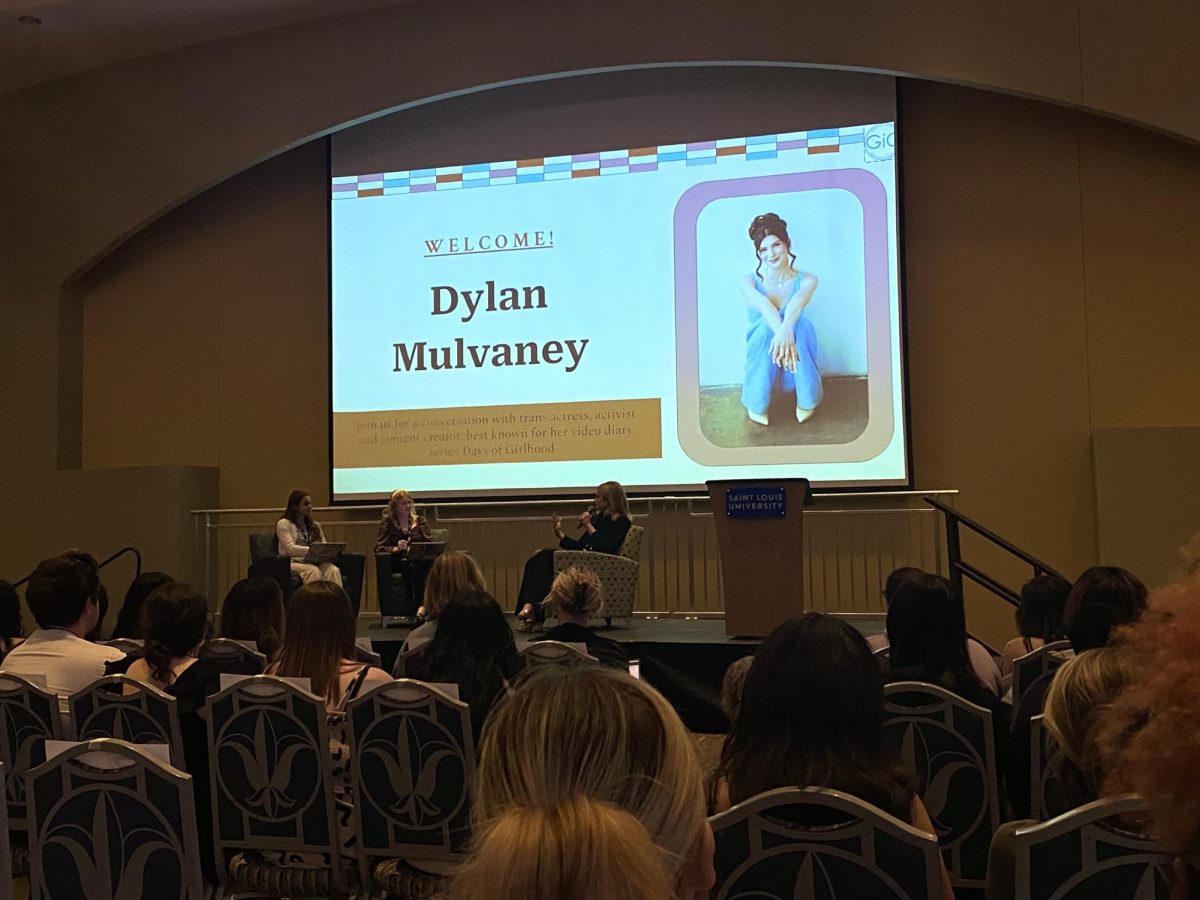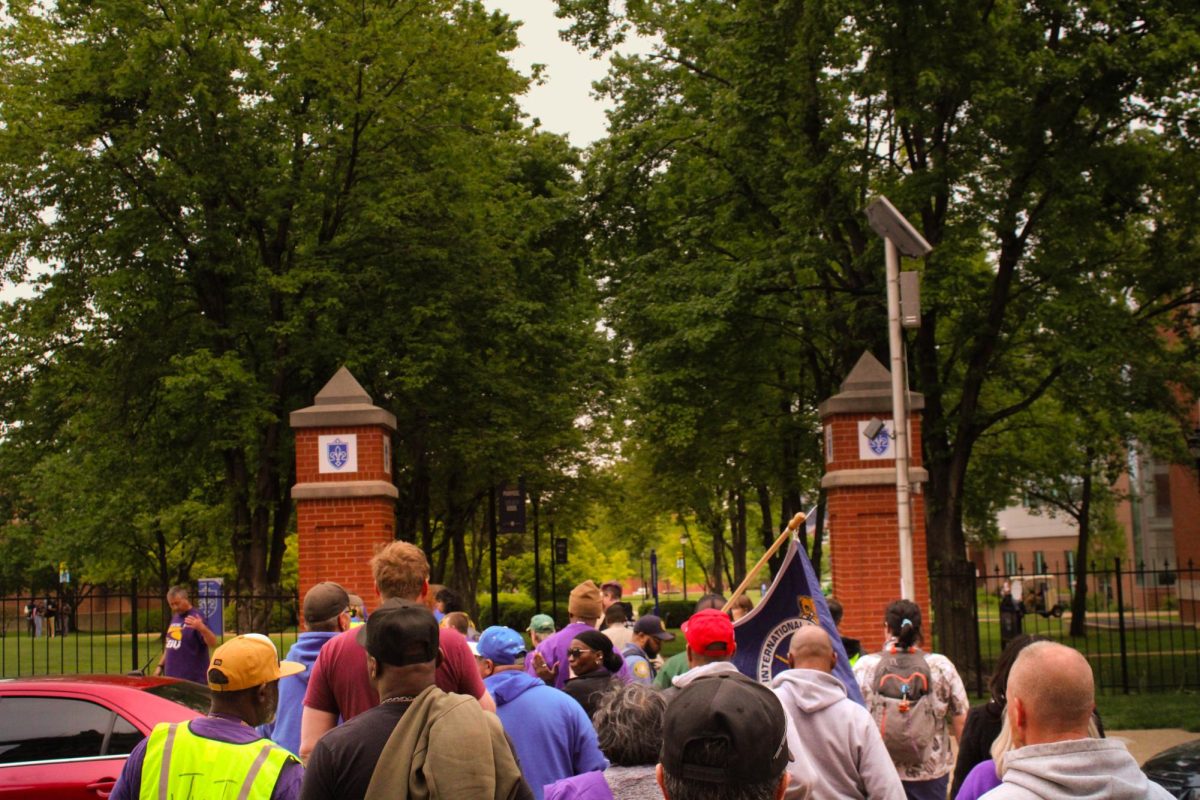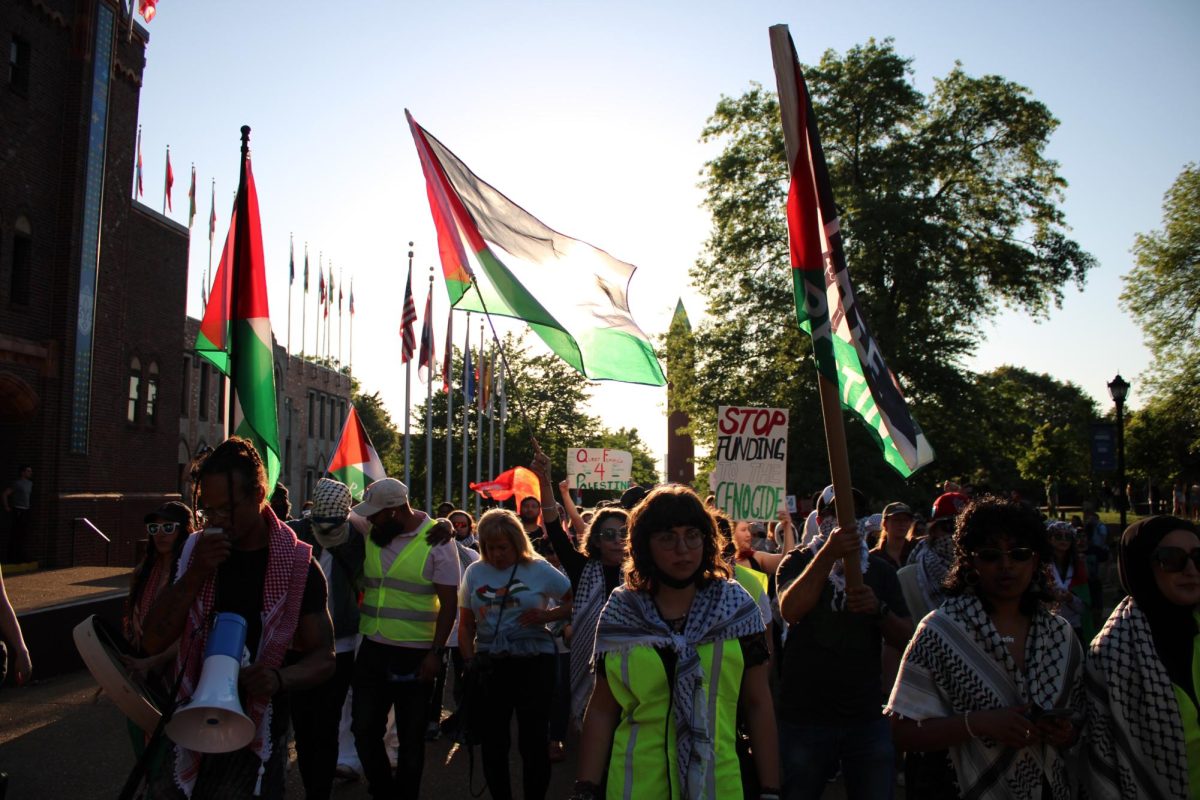Saint Louis University hosted a breakfast celebration Monday to commemorate the triumphs and influence of Dr. Martin Luther King, Jr.
The event, held in the Busch Student Center, included food, a musical performance by the Melody of Praise Gospel Ensemble and a speech given by Russ Mitchell, host of The Saturday Early Show on CBS and a St. Louis native.
Michelle Dickinson, Cindy Lyles and Helen Mosely contributed a spoken narrative to the celebration.
About 300 people attended the breakfast, a significantly more than the 200 guests that organizers expected. The event was open to the public.
“I am absolutely positive that Dr. King would have been very pleased had he been our guest speaker that morning,” said Julius Hunter, SLU vice president for community relations. “What a beautiful and variegated garden of faces reflecting inclusive gender and all colors, ages, faiths and creeds. The SLU Family reflected Dr. King’s dream explicitly.”
Monday marked the second time that SLU held the breakfast, which student Charles Flint, one of the breakfast’s original organizers, had hoped would become an annual celebration.
“Dr. Martin Luther King, Jr. Day is not a day to sleep in-it’s a day on, not a day off,” Flint said.
King’s policy of nonviolent protest and the movement he spurred eroded long-standing, systematic discrimination of African-Americans.
As a pastor for the Dexter Avenue Baptist Church in Montgomery, Ala., where he staged a 382-day boycott of the city’s then-segregated bus lines, King established himself as the vanguard of the civil-rights movement. Imperturbable, King sustained his protest despite imprisonment and the bombing of his home. Ultimately, the Supreme Court deigned bus segregation unconstitutional.
In 1957, King organized the Southern Christian Leadership Conference, which bound together a number of black leaders, who, under King’s tutelage, spread his peaceful designs for ending discrimination to black communities throughout the United States.
In Birmingham, Ala., in 1963, King’s nonviolent campaign was tested but remained steadfast. Protesting for fair-hiring practices and the desegregation of department stores, hundreds of African Americans, King among them, were beaten and imprisoned by local police.
In confinement, King composed A Letter from Birmingham Jail, which rebuked his critics and articulated the plight of those who were battered in Birmingham and the far-flung communities throughout the United States struggling against discrimination and brutality.
King’s impact, for which he was awarded the Nobel Peace Prize in 1964, still resonates today. He continued his work with opportunity and purpose, shoring up voter-registration campaigns, launching programs for the scholastic advancement of African-Americans and reinvigorating poverty-stricken neighborhoods
throughout the country until his assassination in April 1968.






